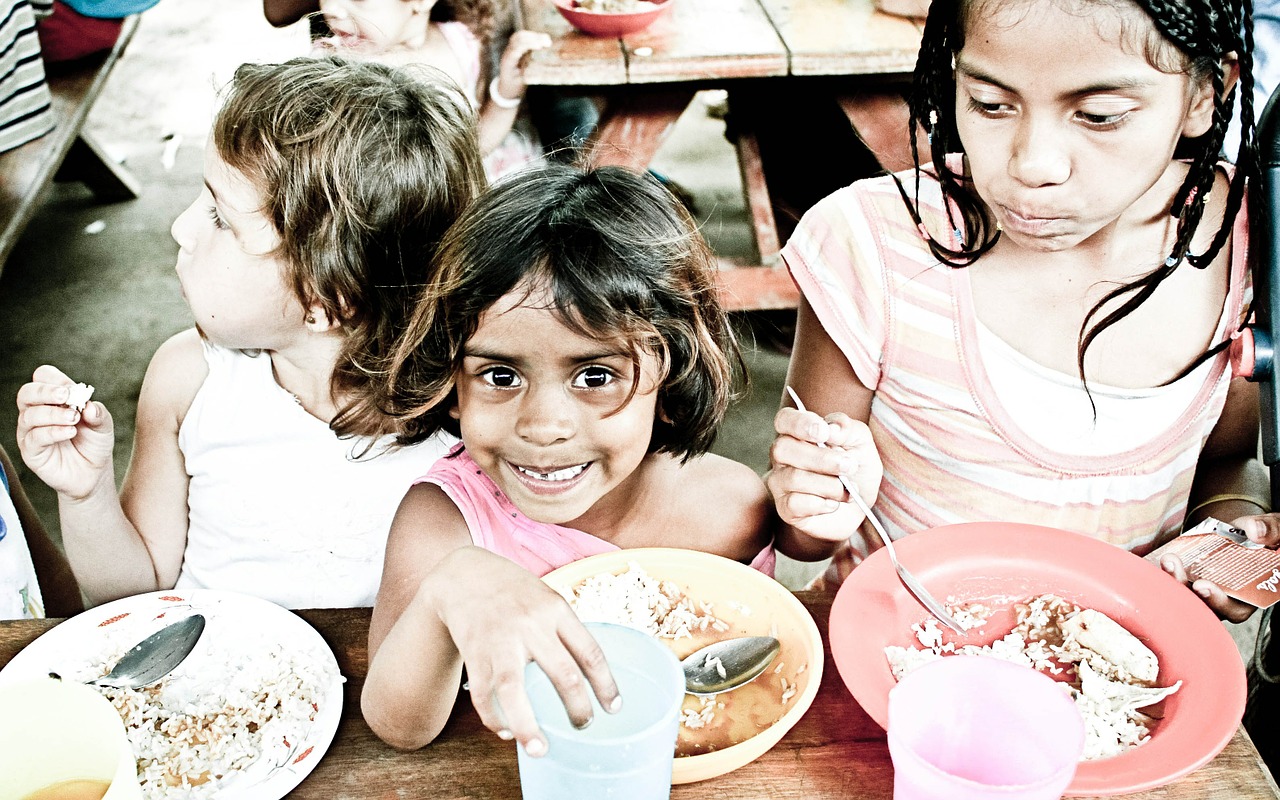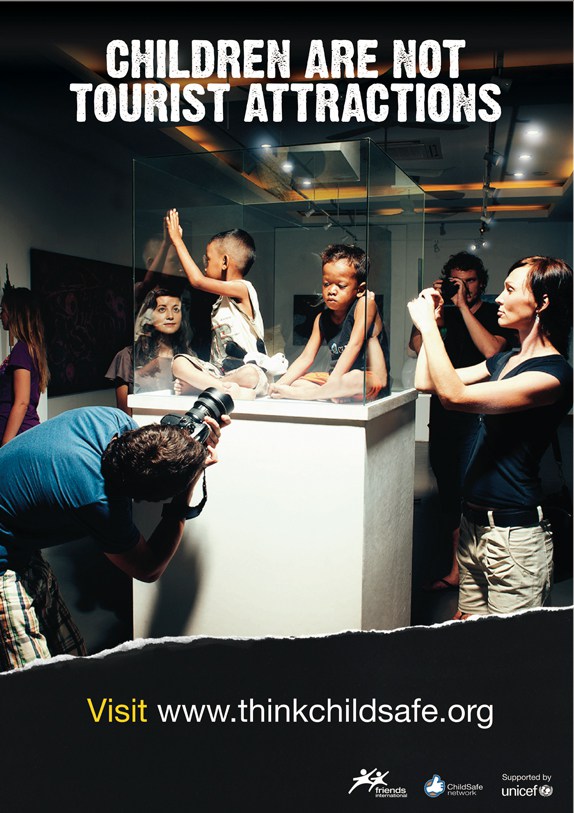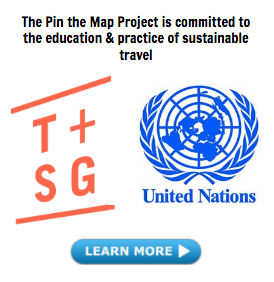I researched the truth behind orphanage volunteering, I was greeted with a photo parade of the smiling, blissfully unaware faces of global volunteers. A group of 20-somethings with large smiles stood kneeling beside skinny children in over-sized clothing at an orphanage in Nepal. Dreadlocked backpackers with handwoven wristbands swayed in tune to the dance performances of orphans in Cambodia. Sun-kissed travelers in faded, college t-shirts stood happily holding hands with toddlers at an African orphanage. All of these volunteers had come to these countries armed with good intentions and a desire to make a difference; none of them realizing that they were playing right into the hands of a sinister and corrupt form of tourism: orphanage volunteering.

Looking at these idyllic shots of Westerners extending a hand to children in need, I could see where the discrepancy rests between what is perceived about orphanage volunteering and what is the reality of it. The compassion of visiting tourists is an incredible emotion and unfortunately one that ismonetized in countries such as Cambodia where UNICEF reports only 28% of children in orphanages are in fact orphans. It’s a shocking statistic that causes pause: Why are children who are not orphans ending up in orphanages? How can orphanages possibly be on the rise in a country where the number of orphans have steadily decreased?
The Nasty Business of Fake Orphanages

To explore the answers to these questions, it’s important to step back and look at the larger picture here, to look beyond the smiling faces of volunteers and understand the situation at hand. Most “orphans”-particularly in Cambodia-have at least one living parent; the reason these children are ending up in orphanages comes down to the simple age-old equation of supply and demand: there is a demand for volunteer opportunities from travelers, which is answered with the creation of fake orphanages that funnel children (who are not in fact orphans) in for the sake of making money off uninformed tourists.
Families from poorer, rural areas are manipulated into sending their children to these “institutions” where quality education, better living conditions and access to healthcare is often promised. Instead, the children are sent to fake orphanages where they grow up surrounded by strangers, are vulnerable to neglect, exploitation and even abuse. The sad and jarring truth of the situation then boils down to this: when travelers donate money and time towards these fake orphanages they are not helping orphans, they are creating them. Volunteering at these corrupt orphanages fuels a sinister tourism industry that poses displaced children as an exhibit for travelers to spend time with for a week, snag a few photos with and then walk away from.
Here’s How to Help:
Education is key in helping to debunk the idyllic images associated with orphanage volunteering and to encourage people to better put their time, money and effort into fostering local community programs. Rather than spend a week at an orphanage, volunteers are encouraged to explore ways to help the rural communities where children are being lured from-whether it’s supporting education programs, businesses or programs that fight to keep families together and better that community.
At the end of the day, the ugly truth of orphanage volunteering seems to go against the very future of the travel industry as a whole. Having just returned from a global summit on Sustainable Tourism at the United Nations, the future of travel is defined by sustainable tourism and the desire to not only visit a country but better its economy, society, and environment in the process.
The Pin the Map Project’s Commitment:
It is education that marks the difference between visiting a destination and causing irreparable damage to its community (as in the case of fake orphanages). Sustainable travel aims to redefine how we see the world and help foster a mutual respect of one another’s cultures and homes. It’s an incredible effort and one that the United Nations has implemented on a global scale with admirable goals that include everything from eradicating poverty to creating global access to clean energy and water. Having recently joined Travel+SocialGood—a non-profit organization aimed at propelling the travel industry to meet its potential for global positive impact—The Pin the Map Project will leverage its following, readership and influence to promote sustainable practices.
This story was written as part of the Stop Orphanage Volunteering campaign organized by Better Volunteering Better Care. Help us spread the world about the dark side of orphanage volunteering by using the hashtag: #StopOrphanTrips on your social media accounts. Also, please sign the Avaaz petition: calling for travel operators to remove orphanage volunteering placements from their websites! Together, we can change the world.
Pin it!




I remember when I visited Cambodia back in 2012 I saw a HUGE number of orphans around the city and I even went to a traditional Cambodian show at one of the most popular orphanages in town; it was to the point where I even considered moving to Cambodia to work for an NGO.
I had no idea that many orphanages are a scam until reading this article. Thank you for shedding light onto this issue and letting people know that they should really know what they are getting into before signing up to volunteer in one.
SO happy you wrote this! I’m in my masters for Social Entrepreneurship, and voluntourism is definitely getting a ton of criticism for reasons as you described. I wrote a post not too long ago about the good, bad, and ugly of ethical tourism/voluntourism. Hope you don’t mind that I link up this post! (www.atipsygypsylife.com)
Lauren
Not at all! I think it’s such an important topic to discuss because the biggest issue seems to be a lack of understanding and a total disconnect about how doing something seemingly positive can actually cause dire consequences. So important to spread the word!
Thank you for this comment! Admittedly, I have wanted to volunteer at an orphanage and was looking to do so in Nepal so was shocked when I got involved with this campaign and learned about all this manipulation. It’s a tough topic and obviously a stray from the usual travel blogging posts, but I think it’s so important to spread the word about it.
Orphanages such as these are also used by the billion dollar international adoption industry. In return for their enormous fees, these ‘non-profit’ adoption agencies provide children for adults who seek to adopt without wishing to acknowledge or deal with the child’s family of origin. The loss for the child and his or her family is immeasurable.
This is one of the most interesting posts I’ve read in a while. I was aware of the fake tribal villages in Laos, but this has come as a shock. Thank you for letting me know. It will definitely change the way I travel in Cambodia.
Thank you for sharing this. There are definitely two sides to “Volun-tourism”: first - the positive desire of volunteers to help and second - the questionable use of the money spent to do so. This article highlights an unfortunate use of this good will and funding. Similarly, in many instances, if the money spent by volunteers to travel to, stay in, and spend a few days building or teaching in remote towns was instead used to empower the townspeople to build or learn independently, the impact would be significantly greater. It is so important to do research before jumping in with our hearts.
It’s such a horrific thing. So thankful that there are many orphanages making a good name for themselves. It’s so important!
I am sick to my stomach reading this. What an unbelievable shame! Thank you for highlighting this issue, I think as a community it is our job to raise awareness about issues like this! Greetings from Germany 🙂
http://www.annacolorista.com